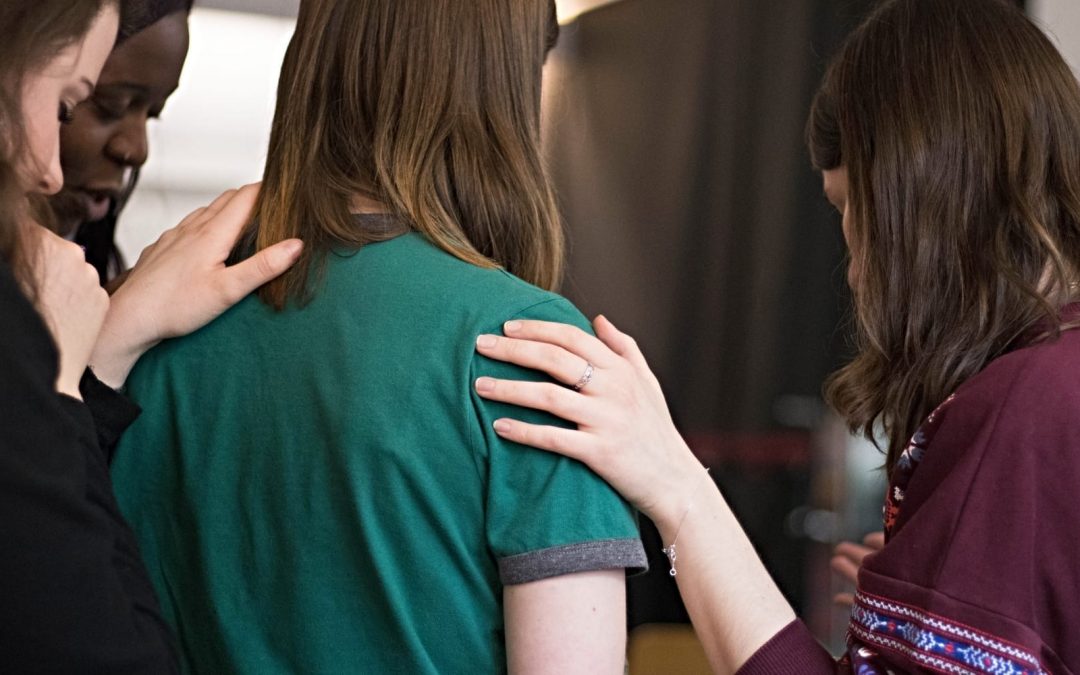Along the Sea of Galilee, the fishing village of Magdala has been excavated in recent years.
It was the hometown of Mary Magdalene, the woman out of whom Jesus drove seven demons. She was also a witness to the crucifixion (when most men had run away) and the first one to see Jesus after his resurrection (see Mark 16).
Last year, I was with a group who spent some time in the church built at Magdala to commemorate how Jesus called fishermen as his first followers, but also women like Mary Magdalene in the beginnings of his movement.
I spent a few quiet moments by the shore throwing stones into the sea. I imagined what it would have been like to see the bustling fishing town, but also to see Jesus striding in, followed by a group that would have been unimaginable before him – men and women learning, serving and experiencing healing together.
We can’t underestimate just how revolutionary Jesus was in his posture toward women. He didn’t treat women as if they were second-class citizens or sexual objects.
Instead, he called them daughters of the King. he taught women as his followers and called men and women to work side by side in the Kingdom of God. His approach toward women was one of equality, dignity and empowerment.
Dorothy Sayers characterized the effect of Jesus’ orientation to women in this way: “Perhaps it is no wonder that the women were first at the Cradle and last at the Cross. They had never known a man like this Man; there never has been such another.”
She continued, “A prophet and teacher who never nagged at them, never flattered or coaxed or patronized; who never made arch jokes about them, never treated them either as ‘The women, God help us!’ or ‘The ladies, God bless them!’; who rebuked without querulousness and praised without condescension; who took their questions and arguments seriously; who never mapped out their sphere for them, never urged them to be feminine or jeered at them for being female; who had no axe to grind and no uneasy male dignity to defend; who took them as he found them and was completely unself-conscious.”
Today, I’m feeling thankful for the women who have made a difference in my walk with Jesus.
I’m thankful for my mom and grandmother, who taught me about Jesus and modeled his life.
I give praise for Sarah Shelton, pastor of Baptist Church of the Covenant in Birmingham, Alabama, whom I worked with early in my career, for her courage and steady voice, even when she was challenged, questioned and dismissed for her calling to preach.
I’m full of gratitude for the women in my church – the leaders, teachers, servants, organizers, prophets and poets. I’m consistently moved by the women of prayer.
But there is still a long road ahead toward the fullness of Christ’s community.
My friend Bob Rognlien, who was with me at Magdala, wrote recently, “Unfortunately this revolutionary affirmation of the equality and worth of women got lost as the church became increasingly shaped by society rather than by Jesus’ teaching and example.”
He continued, “Even in our own era of equal rights for women, the church continues to lag far behind society as a whole in affirming the equal value and importance of women. In countless ways that most male church leaders are woefully unaware of (myself included), the gifts and leadership of women are overlooked or unconsciously devalued, to the detriment of us all.”
How can we be different? What can we do to not overlook, to not devalue, the importance of women? How can we experience more of the rich fellowship Jesus came to create?
First, we cherish.
We cherish all children and youth, but in this era, we need to make sure we pay attention to the callings and voices of females. We show value by serving all with dignity, by giving equal leadership opportunities. We show reverence and honor to widows. We treat women as Christ would.
Second, we listen.
We ask people to share their experiences. What has been your experience as a female in our society, in our church? What has been painful? How is God calling you? What can we do to help?
Third, we protect.
We say clearly that in the life of our fellowship, and inasmuch as we can influence our community, this is the standard: no abuse, no harassment, no patronizing, no objectification, no diminishment.
What Jesus started on those shores of Galilee was like a stone thrown into the waters, with ripples widening out.
He’s still disrupting the waters. He won’t be content until it’s all changed – above and below the surface. He won’t rest until every woman and man has an equal place, beloved sons and daughters of the King.
Editor’s note: A version of this article first appeared on Cliff Temple’s blog. It is used with permission.
Brent McDougal is senior pastor of First Baptist Church in Knoxville, Tennessee.


